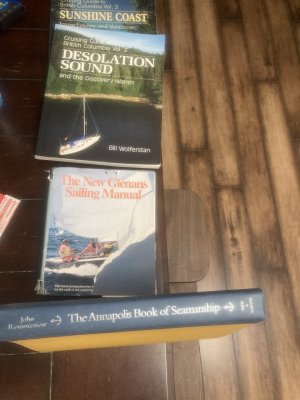Hey guys, the time has finally came to admit.... I'm not like you all. To be honest it was fun to play around and post deals on the buy and sell and have the odd comment here and there, but here's the thing... I don't really "sportfish"! Hell.. I'm a fly fisherman that barely goes knee deep in the water. I had 13 foot Boston Whaler once, and it was super fun but I think I spent more time in my garage rewiring and repowering it than I did on the water...
Now here is where I need your help... I just doubled down and put a deposit on a down on a "big butt" boat. Its a 24' boat, a big 24', and I'm scared shitless... Its a big amount a money and I know the boat could use some love. It's got good bones, however its dated. I don't mind giving it some love and I think its priced appropriately and I can do most of the work myself. I'm sure ill laugh at this in a couple years when I'm podding it...
What makes the most nervous is operating the thing. I can likely get it in the water but from there I'm not very confident. I have the upmost respect for water and weather and wish nothing more than to put myself or my family in danger. I'm up in Kitimat now and I know that the weather can change in a heartbeat. I'm wondering what advice you would give to a new boater and what I can do to set myself up for success and safety....
Thanks. (Warren)
Now here is where I need your help... I just doubled down and put a deposit on a down on a "big butt" boat. Its a 24' boat, a big 24', and I'm scared shitless... Its a big amount a money and I know the boat could use some love. It's got good bones, however its dated. I don't mind giving it some love and I think its priced appropriately and I can do most of the work myself. I'm sure ill laugh at this in a couple years when I'm podding it...
What makes the most nervous is operating the thing. I can likely get it in the water but from there I'm not very confident. I have the upmost respect for water and weather and wish nothing more than to put myself or my family in danger. I'm up in Kitimat now and I know that the weather can change in a heartbeat. I'm wondering what advice you would give to a new boater and what I can do to set myself up for success and safety....
Thanks. (Warren)



